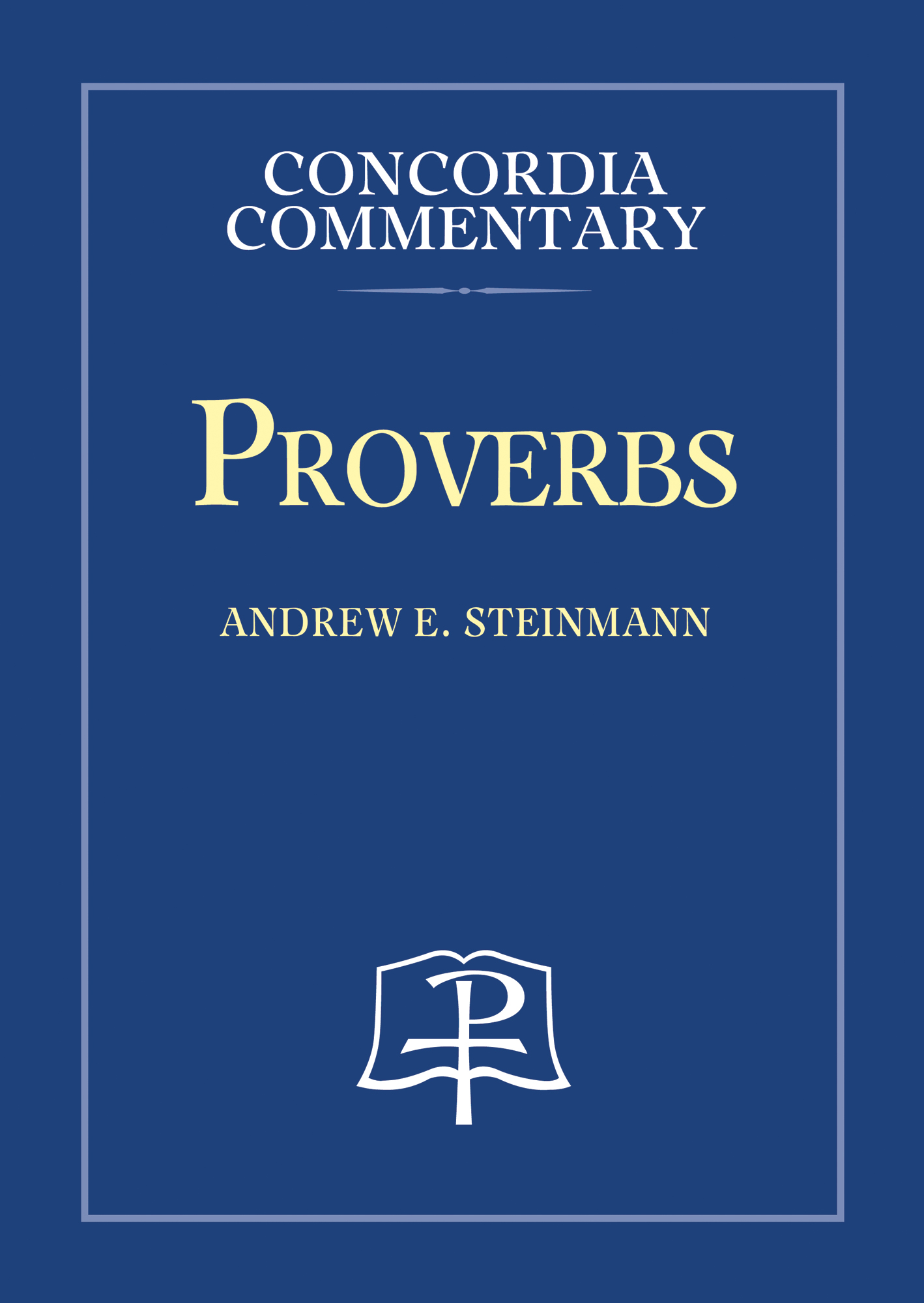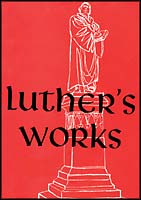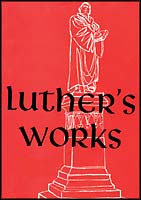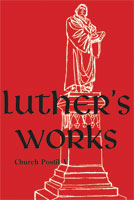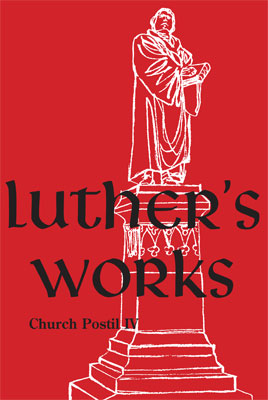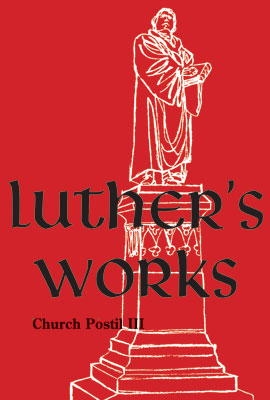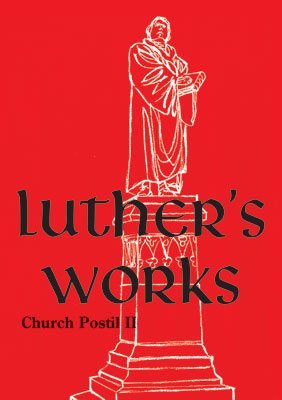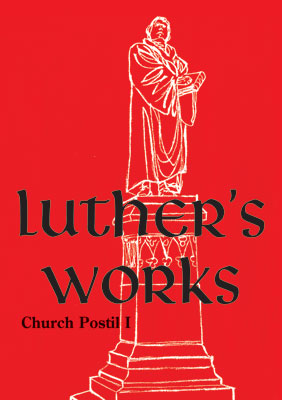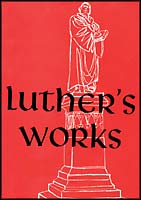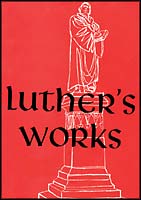Luther’s Works: The American Edition, published by Concordia and Fortress Press between 1955 and 1986, comprises fifty-five volumes. These are a selection representing only about a third of Luther’s works in the Latin and German of the standard Weimar Edition, not including the German Bible.
Just as St. Paul’s Epistle to the Galatians has been called the Magna Carta of Christian freedom, so the Lectures on Galatians delivered by Martin Luther in 1531 and published for the first time in 1535 have been hailed as the great Reformer’s Magna Carta of Christian liberty. In Grace Abounding to the Chief of Sinners John Bunyan (1628-88), who was languishing in jail, told how a long time before this “the God, in whose hands are all days and ways, did cast into my hand, one day, a book of Martin Luther; it was his comment on the Galatians…this, methinks, I must let fall before all men, I do prefer this book of Martin Luther upon the Galatians, excepting the Holy Bible, before all books that ever I have seen, as most fit for a wounded conscience.” Luther treasured St. Paul’s Epistle to the Galatians. Luther’s Lectures on the Galatians, like Paul’s letters, contain many distinctively autobiographical statements. In more than one respect these two men of God were kindred spirits. Both inveighed sharply and vigorously against their adversaries, but they also never lost sight of the Christian love that permeates the words of those who bring God’s message of salvation to their fellow men.

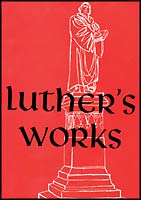
 Back
Back
